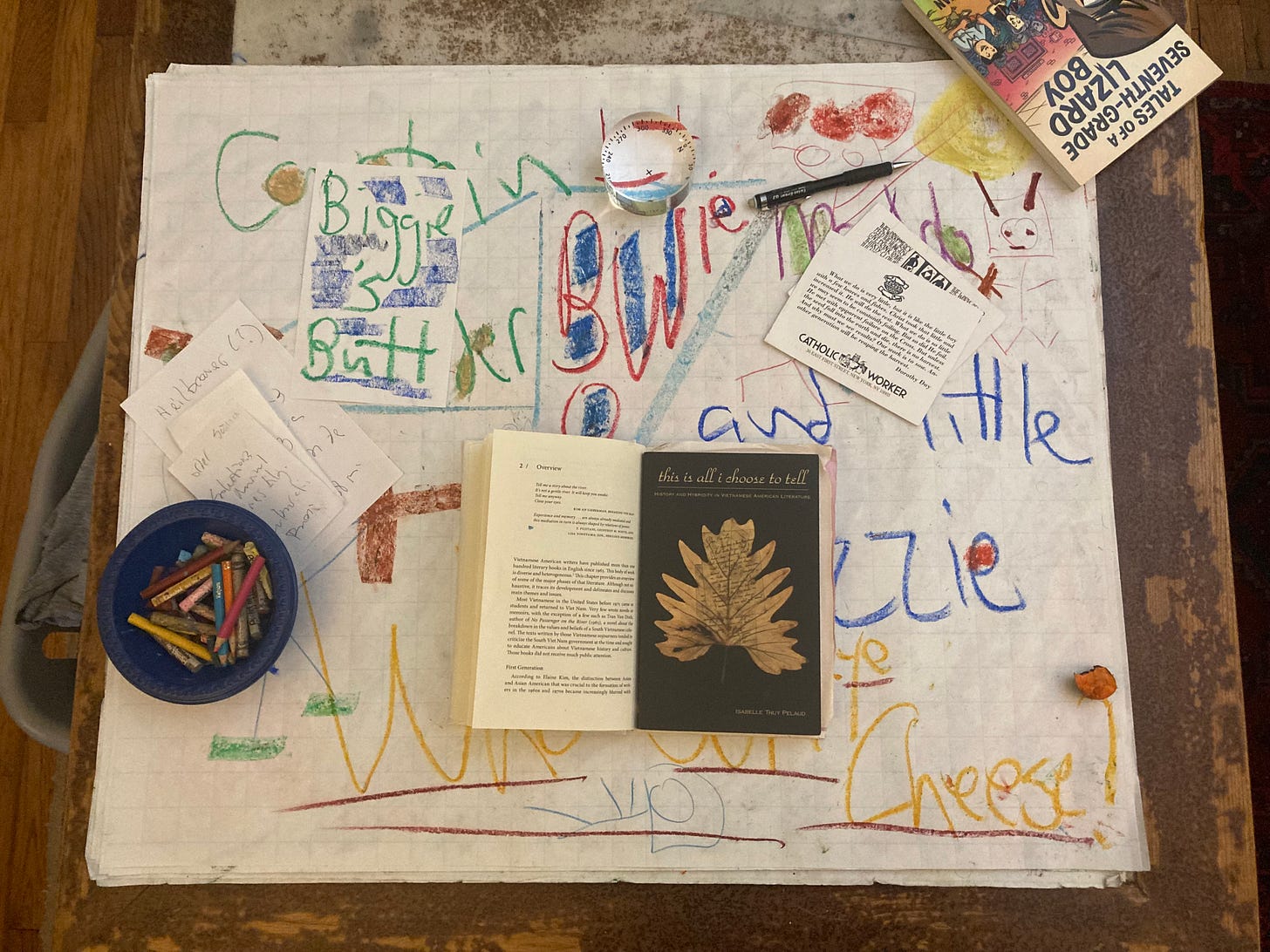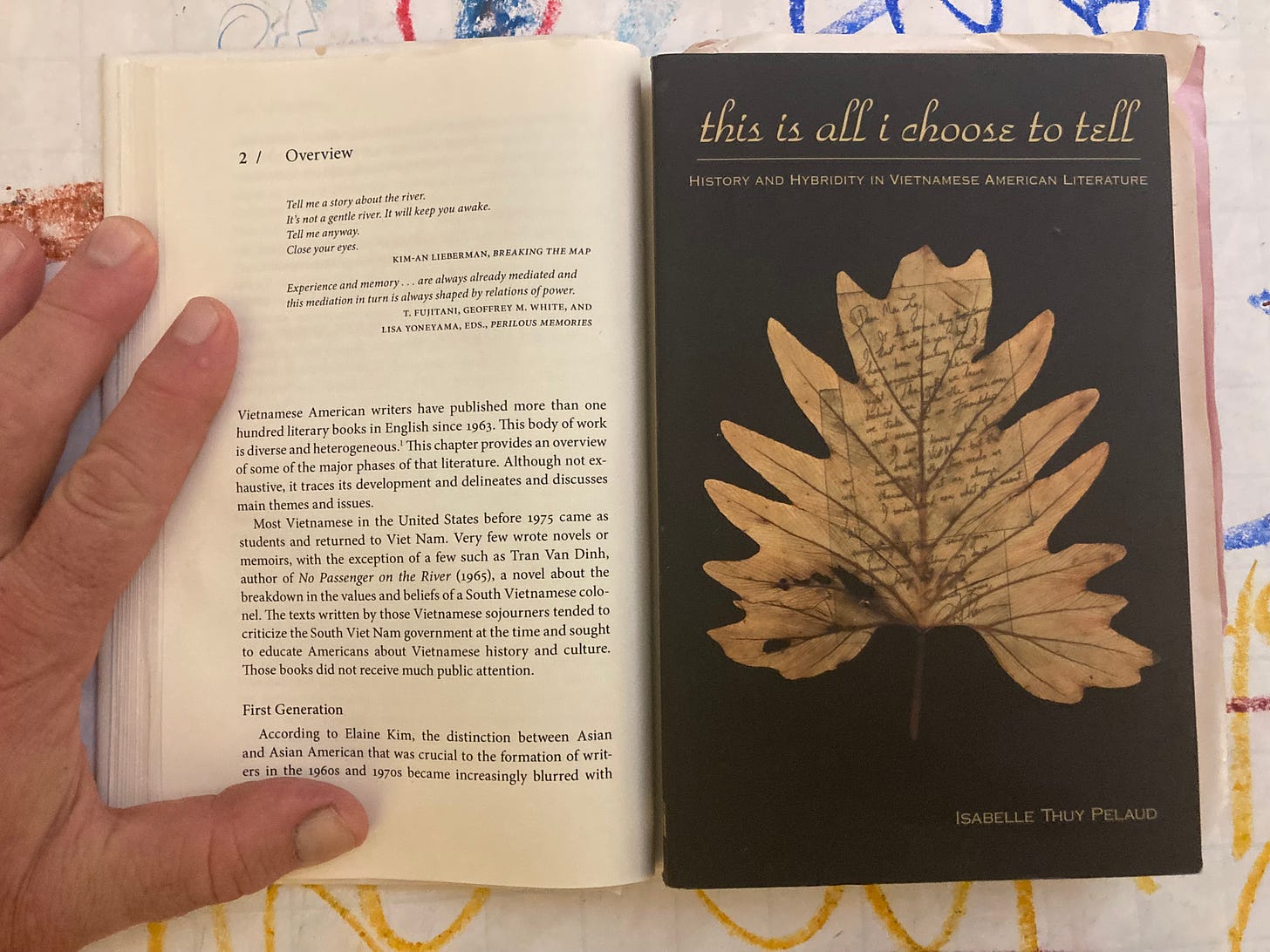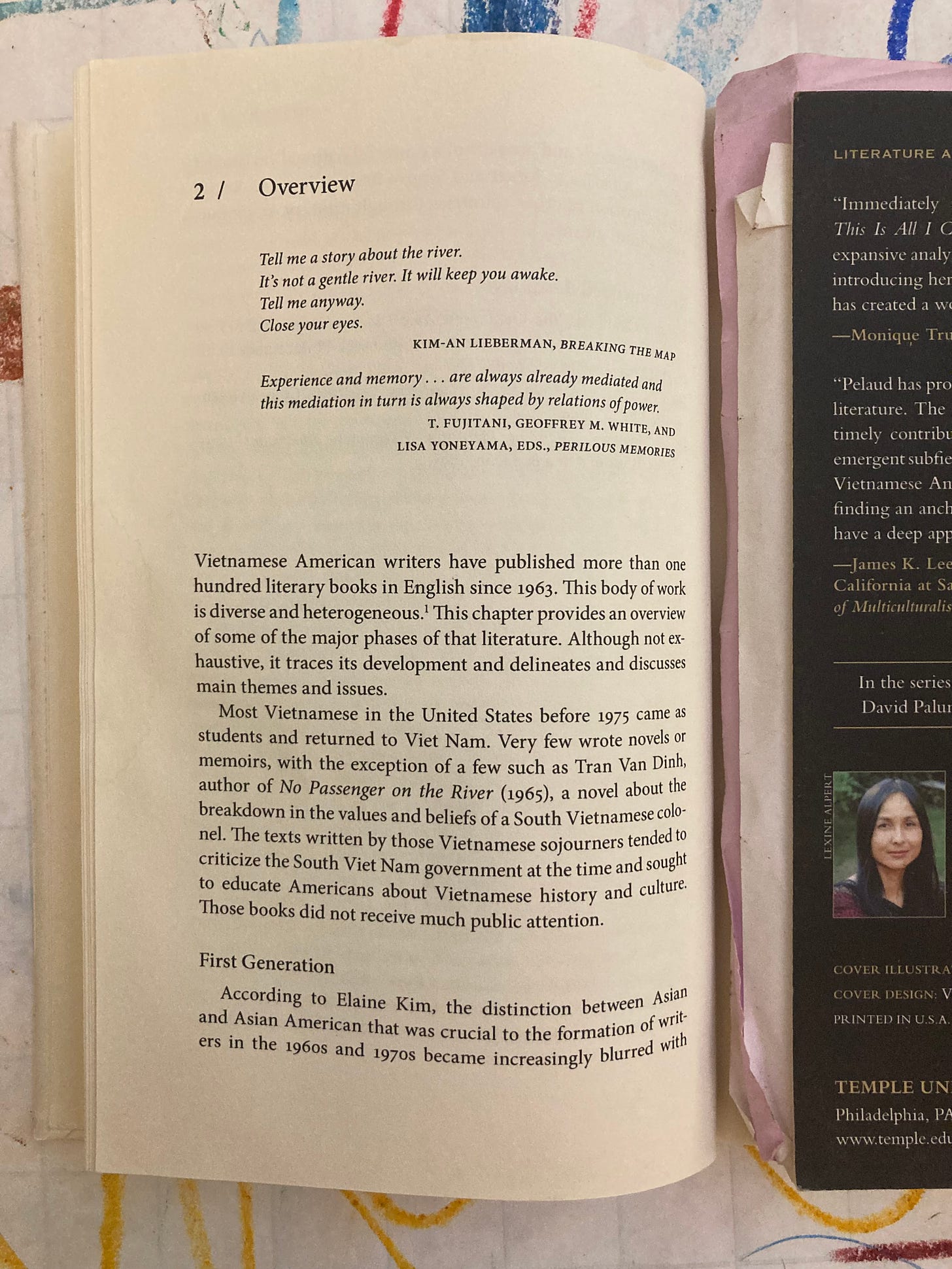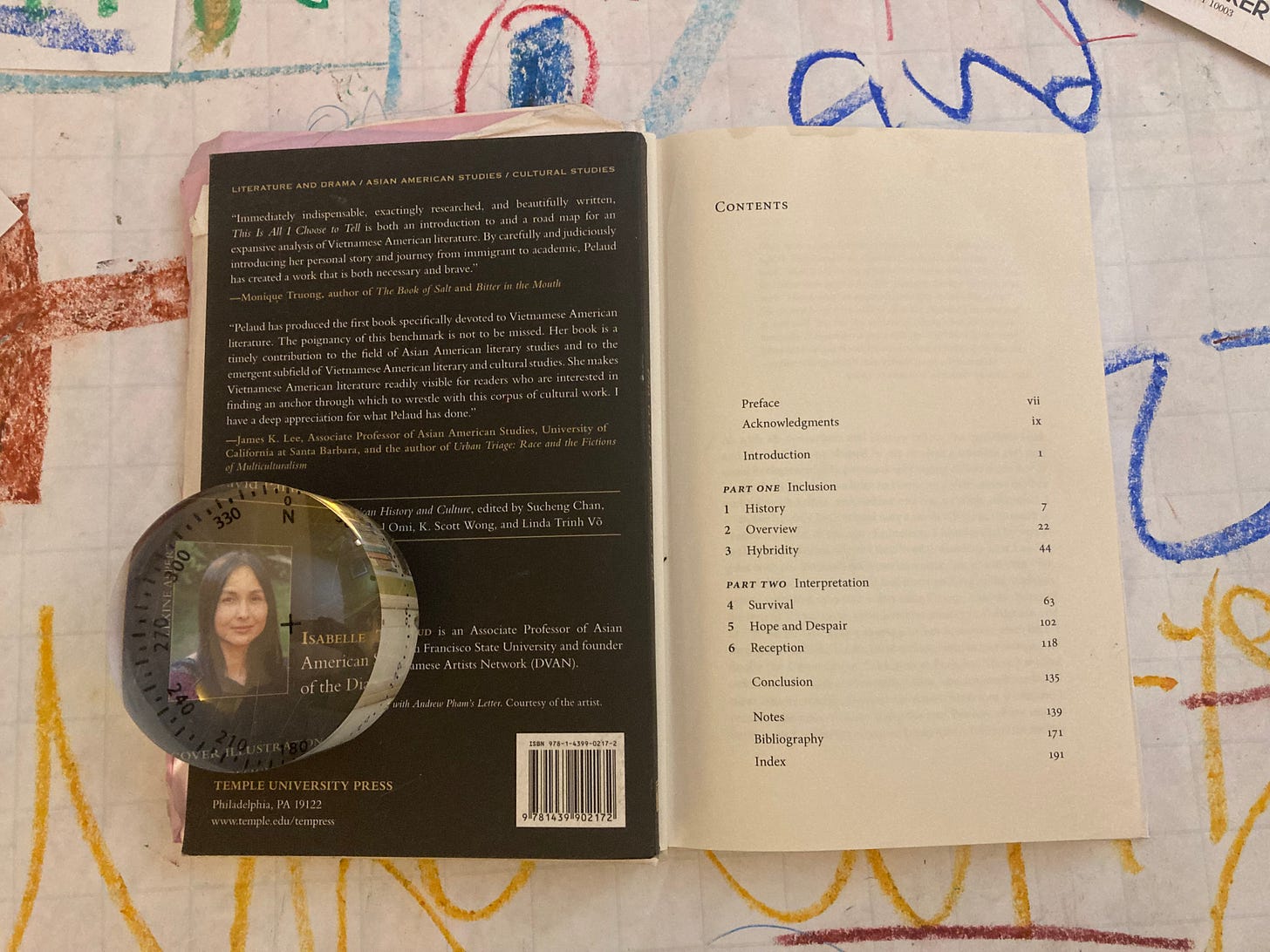This Is All I Choose to Tell: History and Hybridity in Vietnamese American Literature (v)
from critic Isabelle Thuy Pelaud and ethnic studies
Overview of my desk at the Viet Nam Literature Project here in Durham, North Carolina, one of the United States of America. At upper right, Jonathan Hill’s comic book about a lizard boy with funny eyes living as a middle-schooler.
The background is the front page of a comic book I draw for my grandchildren. On it lie two cards the Catholic Worker has sent me when I have sent them $5 or 20 in memory of their past editor Ammon Hennacy.
Ammon was an anarchist and pacifist who admired Dorothy Day, the original Catholic Worker, deeply. He looked up to her from Utah, as far away as you can get from her Worker house in New York City without leaving America.
In the middle of my desk, just below its equator, is the copy of This is All I Choose to Tell: History and Hybridity in Vietnamese American Literature held by the University of North Carolina at Chapel Hill. My own paperback of Isabelle Thuy Pelaud’s book lies on the recto of the hardbound library book.
Promotional material tipped in tells me that Temple University Press sent me the paperback before publication. The review copy arrived when I didn’t know what to say anymore about anything to do with Viet Nam.
It seemed to me that the mildest disagreement, even parallax, from my point of view could cause trouble for those I write about, and bring more unpaid work for me when I was broke and sick. So I just shut down and felt awful about it, a crisis in an illness, a good thing now that I have come out the other side.
Isabelle and I see things differently. Surely this shows that we are indeed persons in the world. Her Overview comes between chapters on her 2 themes, History and Hybridity.
I have written previously how I disagree with History. I don’t agree or disagree with Overview. She begins, Vietnamese American writers have published more than one hundred books in English since 1963.
What all has she chosen to tell about them? The psychic relations between authors, as my Harold Bloom would do? The social world these prints betray, as John C. Schafer’s Ian Watt might see?
No, this is a bibliography for those who prefer narrative to the alphabet, told by a reader who lived this past. I did too and so I find it makes the familiar strange, like reading my life in the newspaper.
Overview is a place-marker for the majority in university work, who do not read. They swap credentials. See, there is a Vietnamese American literature, look at this list of titles published for the trade by people with money. We do too have a topic.
Fine. Somebody had to do it. The author who did is a good egg and any critique of how a critic performed such a duty attacks nothing, defends nothing, naive. Not me, not now. I read, as Isabelle reads.
I will loot Overview for things to read here. I recommend you cut out the middleman. I am looking ahead to Isabelle’s two chapters on Survival, and Hope and Despair, the common expertise.
This was the fifth Viet Nam letter addressing Isabelle Thuy Pelaud’s This is All I Choose to Tell. The first went out April 11, 2022.
The second went out May 11, 2022 and the third on June 15, 2022. The fourth posted on September 5, 2022.
Viet Nam letters respects the property of others under paragraph 107 of United States Code Title 17. If we asked for permission it wouldn’t be criticism. We explain our fair use at length in the letter of September 12, 2022.
The colophon of Viet Nam letters is a thumbnail version of a photograph of me speaking on a Veterans Day with the novelist David A. Willson.









